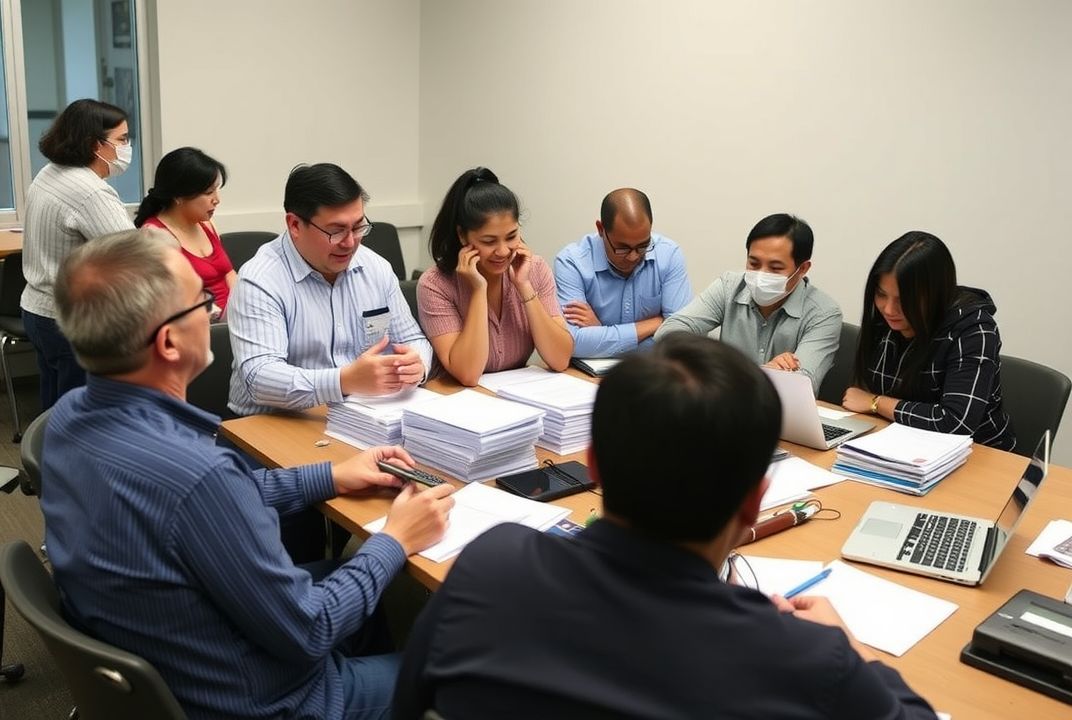Navigating the Future: What to Expect in a Tax Workshop

Curious About What a Tax Workshop Offers?
Have you ever wondered about the intricacies of understanding tax details? Do terms like deductions, credits, and liability make you skip a beat? If so, you are not alone. Tackling taxes is a challenge for many, but attending a tax workshop can be a game-changer. Let me paint a picture for you: imagine leaving a workshop with not just tax knowledge, but a newfound confidence to handle your finances better.
In today’s rapidly changing tax landscape, the need to stay informed is more crucial than ever. Whether you're a first-time taxpayer or a seasoned veteran, tax workshops can offer insights that are both enriching and empowering. This journey promises to enhance your understanding of taxes, helping you make smarter decisions with your money and avoid potential pitfalls.
So what’s in store? Expect a blend of practical advice, expert knowledge, and real-world applications. In this guide, you’ll learn about:
The core features of a tax workshop
Key topics such as deductions and tax credits
Interactive elements that facilitate learning
-
The transformative benefits of attending a workshop
By the end of this guide, you'll know not only what to expect, but also why participating in a tax workshop could be one of the best financial decisions you make.
What is a Tax Workshop?
Attending a tax workshop may sound formal and a bit intimidating. But think of it as a friendly gathering where professionals shed light on various tax-related topics. These workshops are designed to take the guesswork out of tax preparation, turning a complex process into something digestible and even engaging.
The aim is simple: to equip attendees with the tools and knowledge necessary to manage personal or business taxes efficiently. Picture yourself in a room (or even virtually) amongst a group of peers, all eager to learn and engage in understanding taxes better. The facilitator, usually a tax expert with years of experience, leads the group through interactive discussions and activities designed to build confidence in handling your finances.
Core Features: What to Expect
Tax workshops generally cover several core areas, each crafted to address different aspects of the tax process. Let’s break it down:
-
Understanding Tax Basics: Right from the start, you’ll dive into the basics. What is taxable income? How do tax brackets work? These foundational bits are key to grasping larger concepts.
-
Deductions and Credits: Learn about potential deductions and credits that can reduce tax liability. Whether it's education credits or business expenses, get to know the ropes of saving more.
-
Tax Filing Techniques: Gain insight into the different ways you can file your taxes. Online software, paper filing, or using a tax professional—each method will be explored for its pros and cons.
-
Updates on Tax Laws: Engage in discussions on the latest changes in tax legislation. This is crucial for staying compliant and maximizing benefits.
-
Interactive Q&A Sessions: These are opportunities to ask questions and get answers from subject matter experts, helping to solidify your understanding.
Interactive Learning: The Power of Participation
Let me emphasize the interactive nature of tax workshops. These sessions aren't just lectures; they’re engaging experiences designed to ensure participation. Picture yourself tackling small group discussions, hands-on activities, or even role-playing exercises that demonstrate the do's and don'ts of tax preparation.
Workshops often include real-world scenarios, challenging you to apply what you've learned. Imagine analyzing a fictional taxpayer's situation to decide on the best deductions—a practical exercise that makes learning memorable and relevant.
The Benefits: Why Attend a Tax Workshop?
By now, you might be thinking—why bother? Attending a tax workshop offers substantial benefits, including:
-
Boosting Confidence: Let's be honest, taxes can be stressful. But attending a workshop equips you with the confidence to manage your own filing. That self-assurance is priceless!
-
Enhancing Financial Literacy: Knowledge is power, and understanding taxes is a skill that comes in handy time and again.
-
Networking Opportunities: Meet like-minded individuals and industry experts. The connections built here could be beneficial long-term.
-
Cost Savings: By understanding how to optimize your taxes, you may discover potential savings that you weren't aware of before.
Real-Life Scenarios: A Personal Touch
Imagine walking into a workshop as someone overwhelmed by tax terminology. By the end of the session, not only do you grasp the fundamentals, but you're already planning how to apply deductions in your next tax return.
One participant, John, shared his story: "I attended my first tax workshop clueless about handling my business taxes. The session was eye-opening. I left with practical tips and strategies that I've already implemented to save money. It's totally changed how I approach my finances."
Preparing for a Tax Workshop: Your Step-by-Step Guide
Are you ready to take the plunge? Here’s how you can prepare:
-
Research Workshops: Find a workshop that fits your needs. Look for ones that cover topics you’re particularly interested in.
-
Gather Questions: Bring a list of questions or areas you’re struggling with. The more tailored your questions, the more you’ll get out of the experience.
-
Be Open-Minded: Go with an open mindset and be willing to learn and participate in discussions.
-
Network: Don't shy away from introducing yourself. Networking is one of the hidden gems of such events.
In Conclusion
So, are you ready to take charge of your financial future? A tax workshop isn’t just about learning; it’s about transforming your understanding of how taxes work. It’s about empowerment. You’ll walk away with not just knowledge, but the ability to put it into action confidently.
Remember, the sooner you equip yourself with this knowledge, the sooner you start maximizing your financial benefits. Take action now and see the difference it can make in your financial journey.
This guide is a starting point to explore what a tax workshop can do for you. If you've found these insights useful, I encourage you to sign up for a workshop that suits your needs. Stay informed, stay prepared, and most importantly, take control of your taxes!
